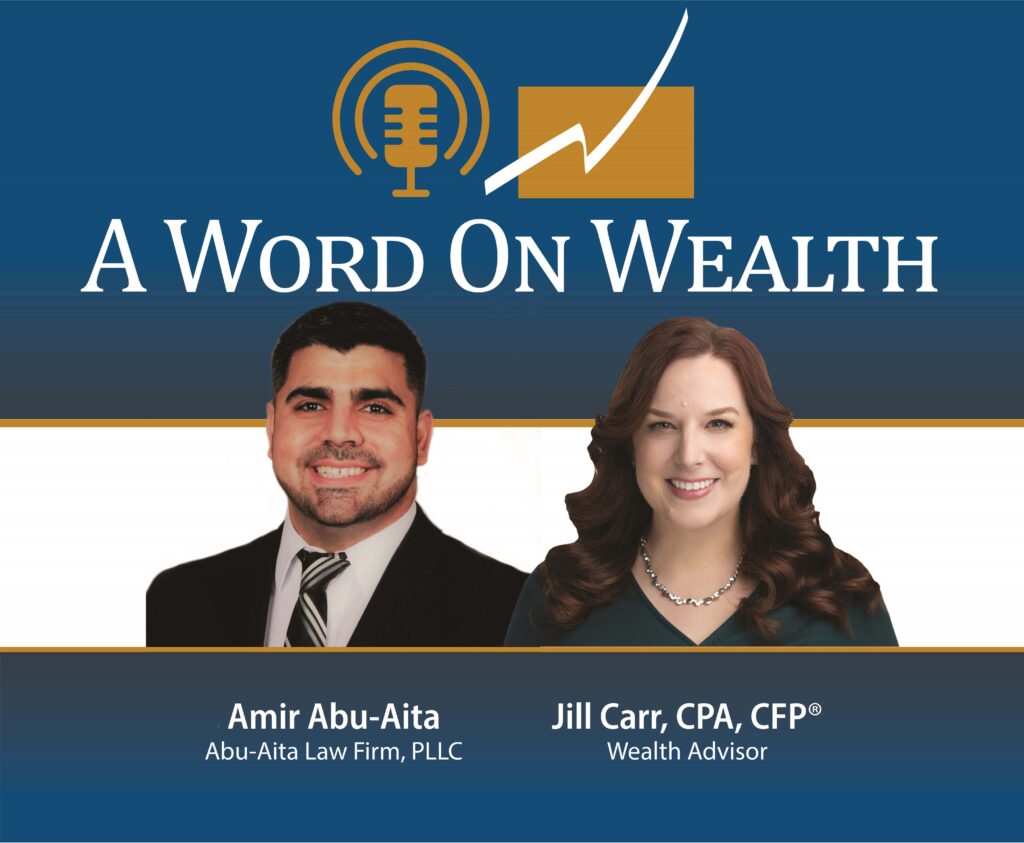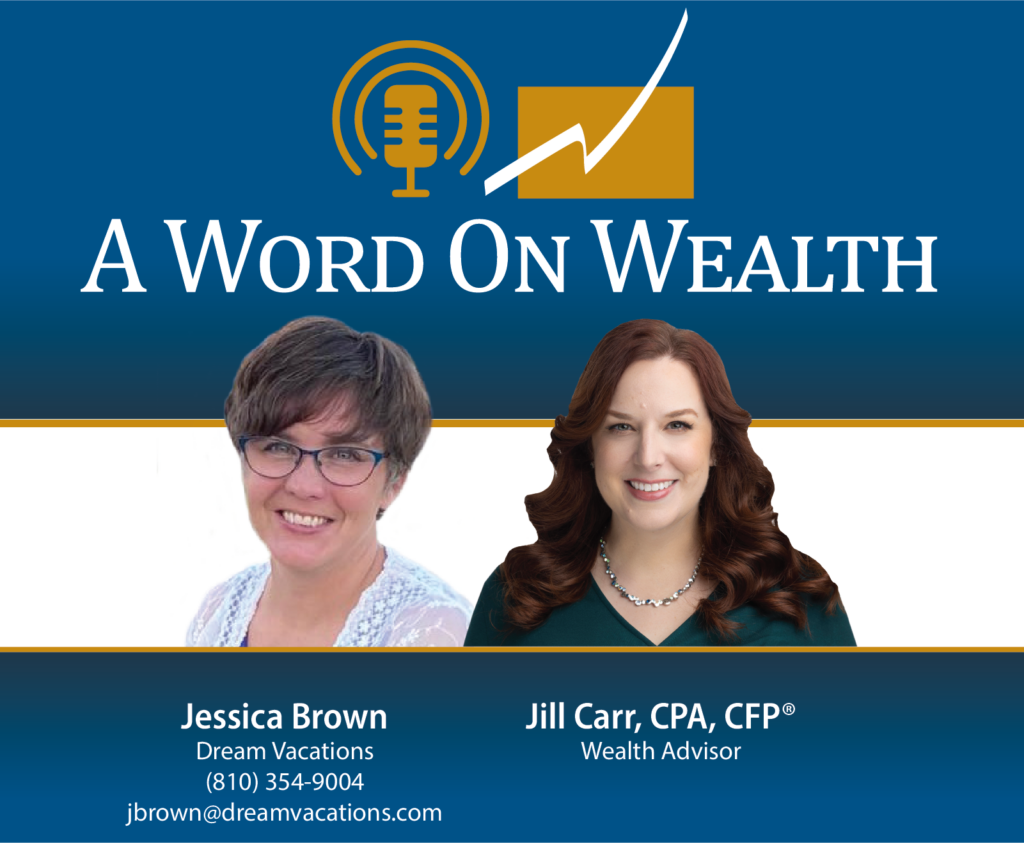Your retirement is a time to savor life’s pleasures, not fret about your finances or lifestyle.
Let us be your trusted partner in helping your retirement vision become reality.
Retirement planning is an important element of your overall financial plan

Peace of Mind in Retirement
One goal of retirement planning is to have peace of mind that you will maintain or improve your lifestyle once you stop working. Even if you do great work in planning for that day from a financial perspective, it may not be sufficient.
Planning your retirement lifestyle – what you will do, when you will do it, where you will do it, and with whom – is equally important. We all know people who thrive in retirement and those who flounder. Our goal is to help you thrive, so we’ve added tools to our retirement planning process that support clients in thinking through lifestyle options.
Planning for Retirement Can Begin Early
Like overall financial planning, there are aspects of your retirement plan that you can begin early in your career.
Likewise, planning for retirement doesn’t stop when you retire, it continues from your transition into retirement to post-retirement, and ultimately into end-of-life planning.

Let’s explore some of the most important retirement considerations at each phase of life: Pre-Retirement, Transition, and finally Retirement.
Pre-Retirement
(20's to Early 50's)

Balancing Saving With Life Expenses
One of the most important things you can do during your working years is to develop a comprehensive financial plan that supports your individual and family values, hopes, and expectations.
Secondarily, this is a phase for saving. Savings activities are often balanced with the need to pay off debt (i.e., student loans, mortgage, etc.), raise children and potentially pay for their schooling, and enjoy trips, recreational activities, and other endeavors that can be costly.
Strategies for turning savings into income generating engines are also an important part of this phase. Investment strategies that align with your goals are identified and put into practice as soon as feasible.
Lifestyle Options, To Consider:
Regular health and wellness checks
Understanding the role insurance and long-term care planning plays in safeguarding your health and finances
Trying out personal activities you want to focus on in retirement including volunteering, part-time jobs, or hobbies and interests
Drafting (and maintaining) an estate plan that supports family values transfer, medical and financial directives, and efficient money transfer if you were to become disabled or die
Transition
(5 - 10 Years Before Retirement)

Strategies to Fit Your Circumstances
For married couples, we build coordinated retirement strategies – meaning strategies that collectively help maximize your retirement goals.
For business owners, beginning to enact your succession plan can be a big step. Your SWMG financial advisor is here to support you and work with other key advisors to enable the transition you want.
Finally, we may also engage in budgeting activities that help you set a comfortable target for monthly cashflow.

Lifestyle Options To Consider
Identifying options for healthcare coverage post-retirement
Building social networks and developing strong support systems
Identifying post-retirement work or volunteer activities
Thinking about travel plans or the desire for a second home to rent or buy
Reading / journaling about the lifestyle you want to pursue once retirement becomes a reality
Refining your estate plan and updating beneficiaries based on life changes
Retirement Phase

You’ve made it! Now what?
Meet with your financial advisor to go through retirement paperwork provided by your former employer or the government (i.e., Medicare, Social Security Administration, etc.), including distribution information, enrollment forms, etc.
Follow the plan – both your financial and lifestyle plans should provide you a soft landing so you can glide more comfortably into retirement. Be careful to hold-off on big decisions until you’ve had a chance to settle into retirement for 6 or more months. Also remember to keep your advisor updated on health changes, changes to your goals, etc.
Lifestyle Options to Consider
Think about your legacy within your family, community, profession, etc. and what steps you’d like to take to enable this legacy
Complete a SWMG Legacy Workbook or online tool to ensure that loved ones know what to do and where to find things if something were to happen to you
Plan for how you want to use your Required Minimum Distribution (RMD)
Refine and implement short- and long-term goals such as traveling, snowbirding, volunteering, taking classes, working a gig, getting a pet, and creating new relationships.
Blogs & Podcasts on Retirement
Episode 9: Thinking About Downsizing Your Home?
Thinking about downsizing your home when you retire or become an empty nesters? What are the things you should know …
Read MoreEpisode 8: How will you pay for assisted living?
The average cost of a private, single room in an assisted living facility is $4,500 per month? How will you …
Read MoreEpisode 5: Travel Planning for Retirees
Our podcasts will cover topics that we are passionate about. Jill Carr (SWMG Wealth Advisor) and Jessica Brown (Owner of …
Read MoreWhat is Disability Insurance and Why Should You Have It?
Continuing with open enrollment month for your workplace benefits, let’s talk about disability insurance. Many people think about life insurance, …
Read MoreWhat Exactly is Open Enrollment?
If you work for someone else, there’s a good chance that you are, or soon will be, in the midst …
Read MoreThe Ins and Outs of Long-Term Care Insurance
Some people think that when they get older and they have to go into an assisted living or nursing home …
Read More- « Previous
- 1
- 2
- 3
- 4
- Next »






